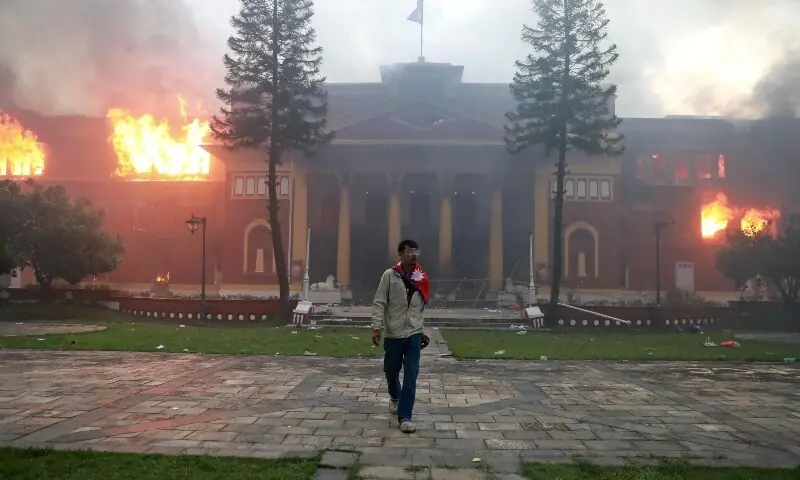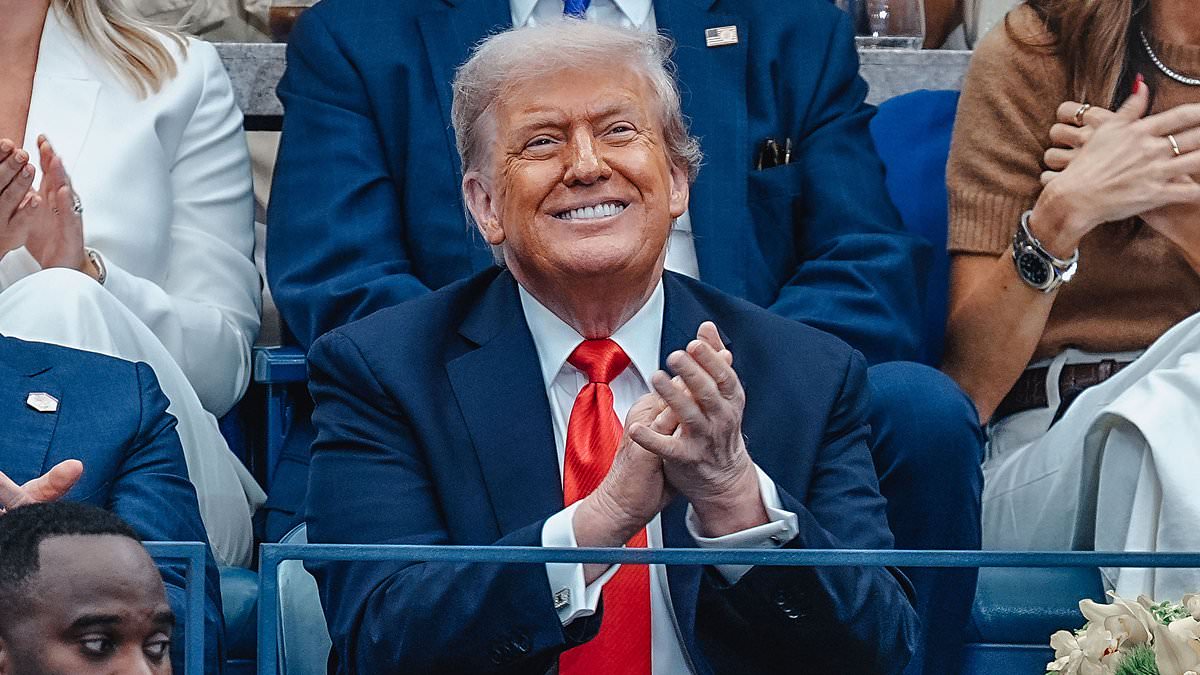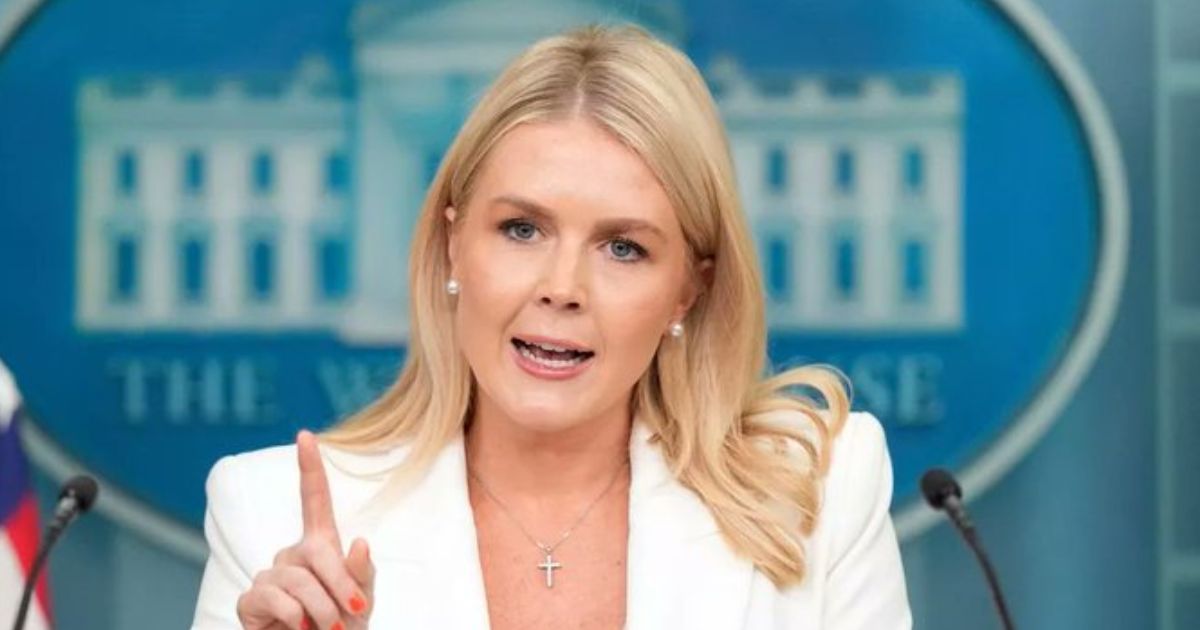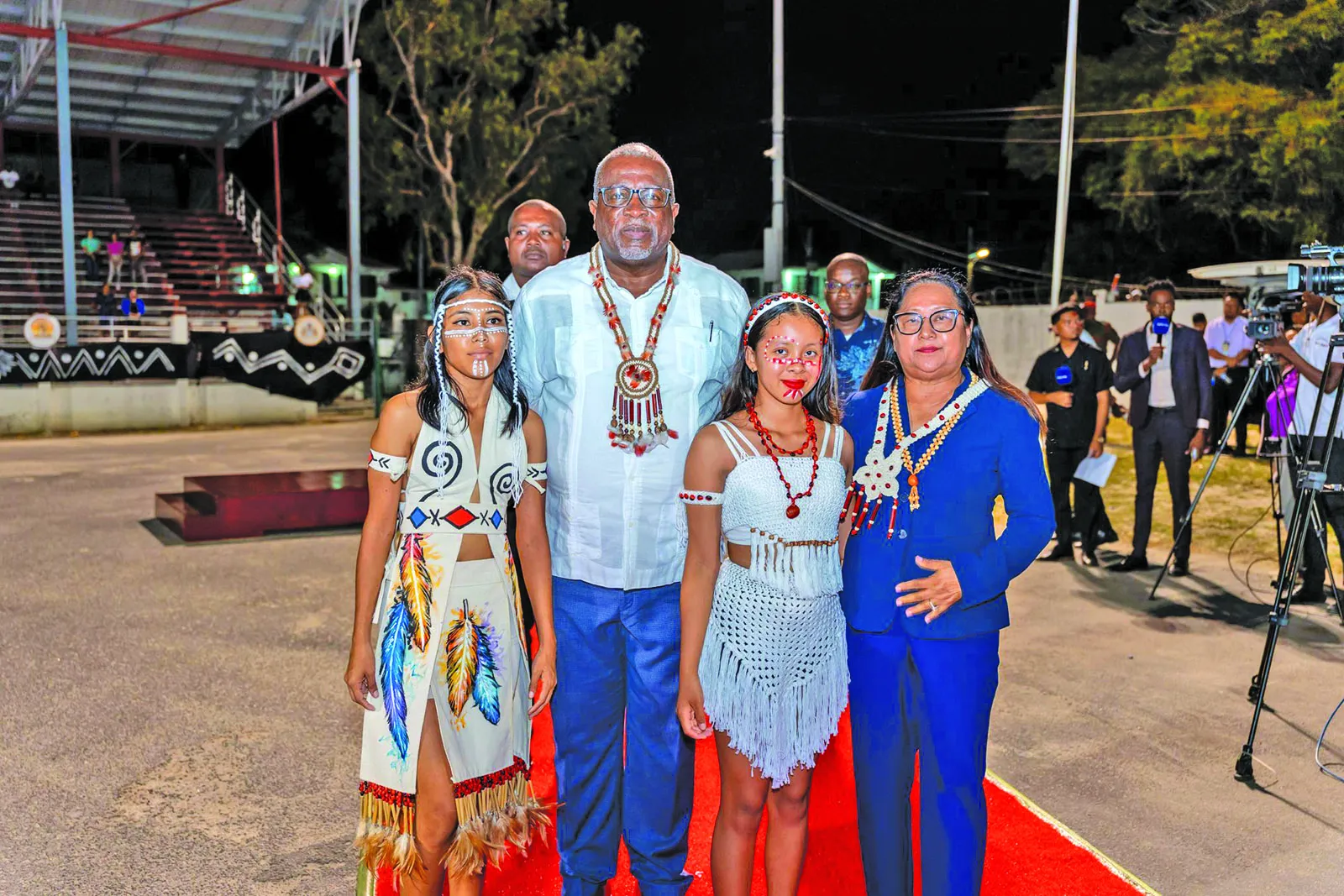By AFP
Copyright dawn

Nepali Prime Minister KP Sharma Oli was forced to resign on Tuesday by angry young anti-corruption protesters who defied a curfew and clashed with police, a day after 19 people died in the violence.
The outrage was sparked by a social media ban, which Oli’s government lifted after police fired tear gas and rubber bullets at protesters trying to storm parliament, and 100 people were injured, alongside the 19 dead.
But there was no let-up in the protests on Tuesday, which plunged Nepal into fresh political uncertainty.
The unrest is the worst in decades in the poor Himalayan country, which is wedged between India and China and has struggled with political and economic instability since protests led to the abolition of its monarchy in 2008.
Young Nepalis have for years been frustrated at the lack of jobs, and millions have gone to work in the Middle East, South Korea and Malaysia, mainly on construction sites, and send money home.
“In view of the adverse situation in the country, I have resigned effective today to facilitate the solution to the problem and to help resolve it politically in accordance with the constitution,” Oli said in his resignation letter to President Ramchandra Paudel.
An aide to Paudel told Reuters the president had begun the process of finding a new premier, but also summoned protest leaders for talks.
A military source said army chief Ashok Sigdel would address the nation later today.
Jubilant youths entered the parliament complex on hearing the news, waving their hands in the air and shouting slogans as smoke rose from sections of the building.
“We won,” one protester wrote in huge orange letters on the wall of the parliament building.
Although the protesters were still on the streets of the city, there was no more violence as security forces kept their distance.
Prime minister’s house ransacked
Oli, 73, was sworn in for his fourth term in July last year as Nepal’s 14th prime minister since 2008. Two of his cabinet colleagues had resigned on “moral grounds” late on Monday.
Early in the day, Oli had called a meeting of all parties, saying violence was not in the interest of the nation and “we have to resort to peaceful dialogue to find solutions to any problem”. He did not respond directly to the protesters’ complaints about corruption.
But protesters continued gathering in front of parliament and elsewhere in the capital, Kathmandu, defying an indefinite curfew.
They set fire to tyres on some roads, threw stones at police in riot gear and chased them through narrow streets.
Witnesses also said protesters were setting fire to the homes of some politicians in Kathmandu, and local media reported that some ministers had been plucked to safety by military helicopters.
The Singha Durbar area, which houses the Prime Minister’s Office and other ministries as well as Parliament House, and Oli’s private residence, was also set on fire, they said.
Footage circulating on social media showed former prime minister Sher Bahadur Deuba and his wife Arzu Rana, foreign minister under Oli, and Finance Minister Bishnu Paudel being attacked by protesters.
Reuters could not immediately verify the information.
Kathmandu airport shut
Kathmandu airport, Nepal’s main international gateway, was closed because of smoke from fires set by protesters, the Civil Aviation Authority said.
Organisers of the protests, which spread to other cities, have called them “demonstrations by Gen Z”, driven by young people’s widespread frustration with a perceived lack of action to tackle corruption and boost economic opportunities.
“The protest was intended, first and foremost, against the rampant corruption in government,” a protester said in an email to Reuters, signing off as ‘A concerned Nepali citizen’.
Young Nepalis had been posting on social media about the “luxurious lives of the families and children of corrupt politicians and civil servants” until the government clamped down on the platforms, the email said.
Last week, Oli’s government blocked access to several online platforms for allegedly failing to register with the government, saying social media were being used to spread disinformation and commit fraud.
UN rights chief ‘appalled’ by Nepal violence, urges dialogue
The UN rights chief voiced alarm at the escalating violence.
UN High Commissioner for Human Rights Volker Turk is “appalled by the escalating violence in Nepal”, his office said in a statement.
“I plead with security forces to exercise utmost restraint, and avoid further such bloodshed and harm,” Turk said. “Violence is not the answer.”
Turk stressed that “dialogue is the best and only way to address the concerns of the Nepalese people”, adding that “it is important that the voices of young people are heard”.
He said they had the right to peacefully express their frustrations, adding there were “concerning reports of unnecessary and disproportionate use of force by the security forces”.
“I call for urgent, thorough, transparent and impartial investigation into such acts.”
Turk stressed that protesters, too, must refrain from violence.
“I am disturbed by reports of public buildings, businesses and private residences being attacked and, in some instances, set ablaze,” he said.
“Equally, I am concerned by reports of physical attacks on senior government officials,” he added.
Turk said his office stood “ready to support dialogue and trust-building measures that can help de-escalate tensions and restore confidence”.



